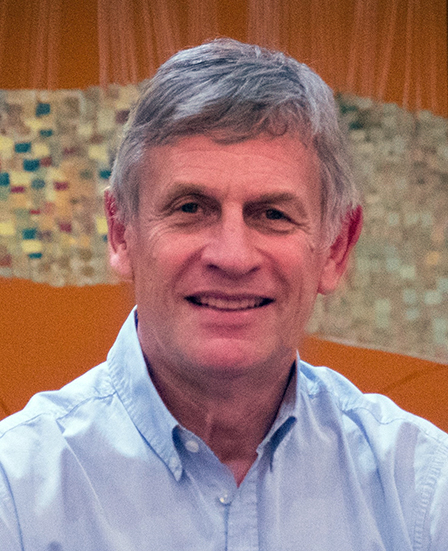Commemorating through sport
For the First World War centenary, Jean-Louis Biasin, chairman of the Paris Departmental Rugby Committee, and Peter Macnaughton, deputy chairman of the Île-de-France Rugby League, made the Tournoi des Capitales a focus of remembrance, to raise awareness among young players about the shared memory of France and its former allies and adversaries.
What is the Tournoi des Capitales?
Why have you chosen to give it a remembrance theme these last few years?
Jean-Louis Biasin: The Tournoi des Capitales is an international youth rugby sevens tournament, founded in 2006 to run alongside the 2007 Rugby World Cup. Every two years, some of the world’s top boys’ and girls’ teams battle it out in Paris. In addition to the sporting challenge, the tournament has a strong educational focus, because it gives teenagers from a wide variety of social and geographical backgrounds the opportunity to meet and interact over three days, in keeping with rugby’s universal values: respect, soildarity, tolerance and courage.

Jean-Louis Biasin. © Rights reserved
A theme is chosen for each edition of the tournament, and in 2015 we chose to commemorate the First World War, by paying tribute to the rugby players who were killed in the conflict. Our 250 young players were invited to the École Militaire for a conference on the sportsmen (including 121 rugby players) who fell in 1914-18, and on two in particular who gave their names to the tournament’s two stadiums: boxer and rugby player Georges Carpentier, and world record-breaking runner Jean Bouin.
In 2017, we took up the commemorative theme once again, with a special tribute to the soldiers who came from other continents to fight in Europe. A team from Manly, a suburb of Sydney, relit the flame of the Unknown Soldier beneath the Arc de Triomphe, before travelling to the Somme to visit the graves of 20 of their club’s players killed in the fighting.
Does sport also have a role to play in passing on memory, and has it increased young people’s interest in the commemorations?
Peter Macnaughton: The act of commemoration is rooted in the values of rugby which Jean-Louis mentioned. Rugby is the only sport to be born in a school, and it has a duty to perform this educational role of passing on memory, linking past and present in a simple and accessible way for young people who are not necessarily mad about their school history lessons!
It was in this spirit that we teamed up with the Ministry of the Armed Forces Directorate for Heritage, Remembrance and Archives and the Mission du Centenaire, in 2014, to organise a weekend trip for the young members of two historic clubs in Brive and Paris. At the invitation of Pierre Camou, chairman of the French Rugby Federation, we trained at the Centre National du Rugby, laid wreaths in honour of those killed in the First World War, then visited the Musée de l’Armée. In the evening, for the kick-off of a Top 14 match at Stade Jean Bouin, our players wore the lace-up collared shirts of the period. Before the match, two youngsters from each of the Paris rugby schools symbolically placed a rugby ball before the plaque in memory of Jean Bouin.

Peter Macnaughton. © Rights reserved
Your events are eminently international in nature. How can sport be a vehicle for sharing memories between nations?
Peter Macnaughton: Commemoration is a natural human act, performed throughout the world. Sharing this noble act between peoples is important, but it is less natural, as each country has its own ways of commemorating, for obvious reasons of history, temperament, culture. Rugby can be a vehicle for sharing, not only because its common language enables it to overcome the language barrier, but also because, despite being fiercely fought out on the pitch over two halves, it is a sport which, throughout the world, ends with a unique time of socialising, which we call the third half!
A recent example was in October 2019, when our league hosted the German national U18 and U16 teams for a training course in Paris, in partnership with the Franco-German Youth Office, an organisation set up in 1963 to develop relations between young people in the two countries. Over five days, the German youngsters and their Île-de-France counterparts shared their passion for rugby, on and off the pitch.
Is your initiative, which brings sporting values into play for remembrance purposes, a way of questioning our commemorative practices and showing that there are other ways to commemorate?
Peter Macnaughton: Yes, I think so. Whether our forebears were killed on the battlefield 20, 50 or 100 years ago, honouring their memory is today an immutable, unquestionable duty, and will go on being into the future. Yet meanwhile society is constantly changing, and in order to remain relevant and accessible to everybody, commemorative practice must also change.
France-Germany match, 26 October 2019 © Ligue Île-de-France de Rugby
I myself was born in 1955, scarcely ten years after the end of the war. My father gave up his studies at 21 to go and fight Hitler in North Africa, and my mother was a nurse, who at 18 was caring for the seriously wounded in a British hospital. Every family in our Scottish village had lost members in the Second World War: for my post-war generation, remembrance and contemplation were, ten or 20 years later, instinctive daily reflexes. They were expressed in a rather formal way, because that was the custom in a period of economic hardship.
But today, 75 years after the end of hostilities, the vast majority of young Europeans, my own children included, have had the unprecedented chance to grow up in a Europe at peace, thanks to their grandparents. They understand perfectly the importance of honouring those who fought for that peace, but their instinct is to commemorate differently, perhaps less formally, and sport, with its values and traditions which they find it easier to identify with, really can offer them another way of commemorating.
After your involvement in First World War remembrance, will your future initiatives continue to have a remembrance dimension?
Are you planning a flagship event for the 2024 Olympics?
Jean-Louis Biasin: Yes, there will definitely be events organised in conjunction with Paris city council and the Île-de-France region for the 2024 Olympic Games in Paris. But let us not forget another key event a year before it: the Rugby World Cup in 2023. The French organising committee has already set up an endowment fund, chaired by Jean-Pierre Rives, to sponsor projects that promote the educational aspects of rugby. A large-scale educational project combining rugby and remembrance, built around the 2023 Tournoi des Capitales, seems to us to be a must, and we are already working on it!

